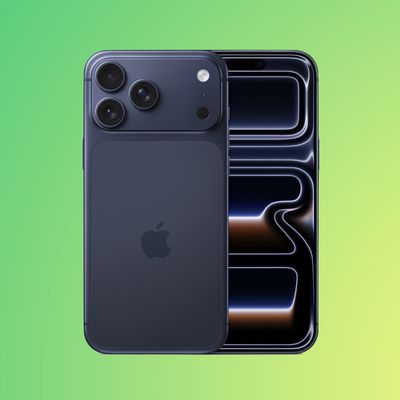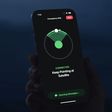Launched in 2017, the iPhone X was a major evolution of the iPhone. The device replaced the Home button and Touch ID with swipe-based navigation and Face ID, while introducing new features like an OLED display, Animoji, wireless charging, and more.
Even five years later, the iPhone X is still a capable smartphone. If you've been holding on to your iPhone X and are considering upgrading to the iPhone 14 Pro when it launches later this year, check out our list below for a recap of the many new features and changes to expect. The list includes major new features added to the iPhone XS, 11 Pro, 12 Pro, and 13 Pro, as well as rumored features for the iPhone 14 Pro.
Also be sure to check out our similar iPhone 11 Pro vs. 14 Pro and 12 Pro vs. 14 Pro comparisons.
iPhone X vs. iPhone 14 Pro:
- Over 2x as fast A16 chip: The A15 chip in the iPhone 13 Pro is already over 2x faster than the A11 chip in the iPhone X, according to Geekbench 5, and performance should improve even more with the A16 chip in the iPhone 14 Pro. Apple also uses a 16-core Neural Engine in the latest iPhones for faster machine learning compared to the three-core Neural Engine in the iPhone X.
- Larger display: iPhone X is equipped with a 5.8-inch display, while the 14 Pro is expected to have a 6.1-inch display.
- Much brighter display: Compared to the iPhone X, the 14 Pro's display will have at least 375 nits higher peak brightness for standard content.
- No more notch: Rumors suggest Apple will replace the notch with a pill-shaped cutout and a hole for Face ID and the front camera on the iPhone 14 Pro.
- Heavier: The iPhone X weighs 0.38 pounds, while the iPhone 13 Pro weighs 0.45 pounds.
- 3D Touch removed: On the iPhone 11 Pro and newer, Apple removed the 3D Touch feature that allowed you to press deeply on the screen to pop open menus or other "hidden" features. 3D Touch was replaced with Haptic Touch, which is more limited and relies on a press-and-hold gesture instead of a deep press.
- Faster Face ID: On the latest iPhones, Face ID is faster and supports more angles.
- ProMotion: Introduced on the iPhone 13 Pro, ProMotion allows for a variable refresh rate up to 120Hz for smoother appearing content and scrolling.
- Always-on display: Rumors suggest the iPhone 14 Pro will feature an always-on display mode that shows the time, date, and iOS 16's new Lock screen widgets.
- Ceramic Shield: Introduced on the iPhone 12 Pro, Apple said the Ceramic Shield front cover increased drop performance by 4x compared to previous models.
- Longer battery life: Already, the iPhone 13 Pro gets 22 hours of video playback vs. 13 hours for the iPhone X, and rumors suggest that iPhone 14 Pro models could feature even larger battery capacities.
- Triple-lens rear camera system: While the iPhone X has a dual-lens rear camera system, the iPhone 11 Pro and newer feature a triple-lens rear camera system with an added Ultra Wide lens for zoomed-out photos.
- 12-megapixel front camera: The front camera on the iPhone X is a 7-megapixel lens, while the iPhone 11 Pro and newer have a 12-megapixel front camera.
- Night mode: Introduced on the iPhone 11 Pro, Night mode allows for greatly improved low-light photography in the Camera app.
- Increased optical zoom: On the iPhone 13 Pro, you can zoom in up to 3x on photos without any blurriness, compared to up to 2x on the iPhone X.
- Numerous other camera improvements: iPhone X users upgrading to the 14 Pro will get a slew of other camera upgrades, including a rumored 48-megapixel Wide lens with support for 8K video recording, an upgraded front camera with autofocus, sensor-shift image stabilization, Smart HDR, brighter True Tone flash, Macro mode, Cinematic mode, ProRAW photos, ProRes videos, and more.
- Flat edges: While the iPhone X's stainless steel frame has round edges, Apple has switched to flat edges with the 12 Pro and newer.
- 5G and Gigabit LTE: While the iPhone X is limited to LTE Advanced, the iPhone 14 Pro will support 5G and Gigabit LTE for faster cellular data speeds.
- Dual SIM support: iPhone XS models and newer have both a physical nano-SIM card slot and a digital eSIM, allowing you to have multiple lines of service/phone numbers on a single iPhone. This feature is useful for having personal and business lines on a single iPhone, or for using pay-as-you-go data plans while traveling.
- Wi-Fi 6E: iPhone 14 models are rumored to support Wi-Fi 6E, which extends Wi-Fi into the 6 GHz band, in addition to the existing 2.4GHz and 5GHz bands.
- MagSafe: iPhone 12 and newer models feature MagSafe, a system that lets you magnetically attach accessories to the back of the iPhone, such as Apple's own MagSafe Charger, MagSafe Wallet, and MagSafe Battery Pack.
- Up to 2x faster wireless charging: iPhones with MagSafe can wirelessly charge at up to 15W speeds with Apple's MagSafe Charger, while wireless charging on the iPhone X is limited to up to 7.5W speeds.
- U1 chip: iPhone 11 Pro and newer models are equipped with Apple's U1 chip for spatial awareness functionality. For example, users can hold a U1-equipped iPhone near a HomePod mini to hand off music playback, or precisely track the location of an AirTag using the Precision Finding feature.
- Increased storage: iPhone X started with 64GB of storage, but the 14 Pro should have at least 128GB of base storage.
- LiDAR Scanner: Introduced on the iPhone 12 Pro, the LiDAR Scanner is situated next to the rear camera and offers faster augmented reality experiences and improves autofocus by 6x in low-light photos and videos, according to Apple.
- Power Reserve for Wallet app: On the iPhone XS and newer, a Power Reserve feature lets you use transit cards, state ID cards, student ID cards, home keys, car keys, and other items stored in the Wallet app with Express Mode turned on for a short period after an iPhone has run out of battery life.
- Improved water resistance: Apple says the iPhone X has IP67-rated water resistance up to a depth of one meter for up to 30 minutes, while the 12 Pro and newer have IP68-rated water resistance up to a depth of six meters for up to 30 minutes.




















